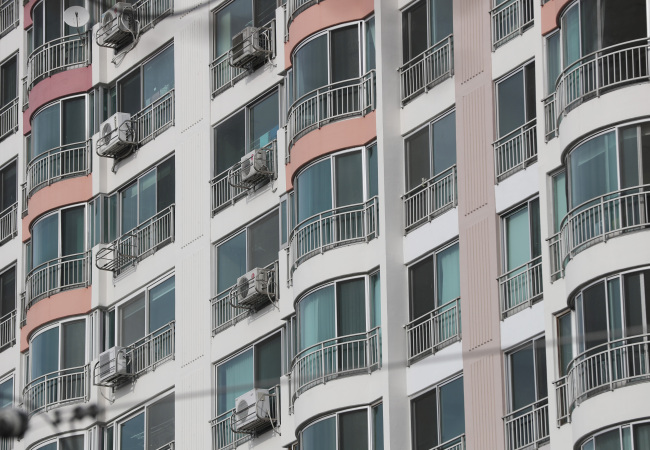An estimated more than two-thirds of South Koreans live in apartments, and living in such close proximity has often caused disputes between neighbors over noise and more recently – odors wafting over from nearby homes.
A post on an online community went viral recently: “Is eating samgyeopsal (roasted pork belly) at home a problem?”
It was written by an apartment resident in Seoul, who said that he had felt insulted when his neighbor who lives upstairs made a fuss because he had cooked samgyeopsal.
“He came downstairs to say that cooking samgyeopsal that emanates smell is a public nuisance. But I cannot really agree,” wrote the man.
 |
| Yonhap |
There is a growing number of complaints over the smells produced by Korean dishes that are notorious for their distinct and strong odors produced by fermented ingredients. However, there are few ways to settle them.
Besides the smell of food, there are also complaints that arise from neighbors smoking at home. Many apartment complexes have regulations that ban smoking within shared spaces in the complex, but it is not illegal to smoke in one’s home.
“We have enough restrictions on places to smoke. If we cannot smoke at home, isn’t that a violation of our rights too?” said Park Jeong-hyun, a 42-year-old office worker who said he has often been confronted by people who live above his apartment.
On the other hand, a mother of a newborn baby, who wished to remain anonymous, said, “Odors of food can be considered fine, as people have to eat. But smoking is lethal and it should be a crime to let the smoke spread to other homes.”
Meanwhile, municipalities are faced with a dilemma on how to solve the growing number of complaints about neighbors.
“There is not enough legal background to consider smell between floors as a (social) problem that needs mediation by the government,” said Kim Woo-cheol from Korea Environment Corp.’s living environment division.
“We hear complaints regarding the smell of cooking, cigarette smoke or dogs barking from time to time, but they are not part of our responsibility and are mostly mediated by police or at court which takes a longer time to be resolved,” he added.
Korea Environment Corp., which is under the Environment Ministry, launched the National Noise Information System in 2012 to listen, via phone counseling, to complaints from residents about noise between floors. However, it does not cover complaints related to smell. The program helped resolve 49,060 of the 70,200 reported cases, as of February 2016.
According to the Korea Environment Corp., the number of complaints over noise in apartments has grown threefold to 15,619 cases in 2015, compared to 7,021 cases in 2012.
Social experts said disputes among neighbors may reflect the modern-day Korean’s stress level and poor anger management.
“We see cases in which neighbors between floors commit crimes out of rage, as they easily vent anger on small things such as noise or smell,” said Gwak Geum-ju, a professor of psychology at Seoul National University.
“As privacy concerns in shared spaces like apartment compounds are inevitable, an official organization or public center to help mediate various conflicts among apartment residents should be established within residents’ community to hear both sides,” she added.
By Kim Da-sol (ddd@heraldcorp.com)

